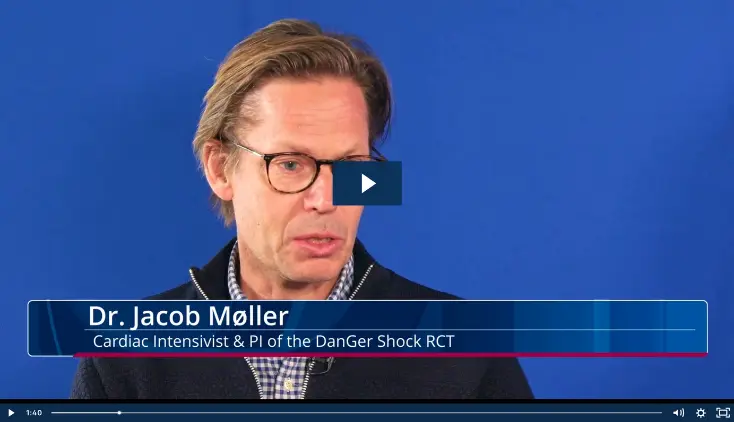Algorithms, AMI Cardiogenic Shock, Surgical Applications
How to Achieve Better Outcomes in PCCS
Prof. Dr. med. Gregor Warnecke discusses how to achieve better outcomes in patients with postcardiotomy cardiogenic shock (PCCS). Prof. Warnecke is vice director of cardiac surgery at University of Heidelberg, and he had this discussion with Dr. Armin Alexander Klesius at the annual meeting of the German Society of Thoracic and Cardiovascular Surgery in Hamburg, Germany in February 2023.
Prof. Warnecke states that survival in patients with PCCS hovers around 40%. While ECMO is effective in some of these patients, he explains that it “did not really change the game.” Over the past few years, he has been using Impella 5.0® heart pump and Impella 5.5® with SmartAssist® heart pump more often to treat PCCS. “We have observed that outcomes improve a lot with this technique.”
After analyzing retrospective data from patients at his institution who either received Impella devices during the initial surgical procedure or days after the procedure, Prof. Warnecke reports, “we found that early [insertion] of the pump, during the initial index procedure, results in much better outcomes as compared to delayed [insertion].” Over the last couple of years their approach has evolved, and now they more often insert Impella devices during the index procedure before the patient leaves the OR when cardiogenic shock is apparent. “In our recent analysis, we saw that survival has increased to up to 70 to 80% in this patient population.”
Prof. Warnecke discusses the standard operating procedures (SOPs) at his institution. “If a patient in the OR can’t be weaned from cardiopulmonary bypass due to left ventricular failure, we want to have an Impella pump [inserted] during the initial procedure,” he explains, “because we see that early unloading of the left ventricle is extremely important in these patients.”
Many patients, especially those with acute myocardial infarction (AMI), have low, but potentially recoverable, LV function if the LV can be unloaded. Prof. Warnecke reports that his data reveal that patients with PCCS who receive an Impella heart pump with their index procedure are on mechanical ventilation following surgery for a median of 3.7 days compared to close to 10 days for patients who receive delayed Impella device insertion. In addition, he reports that the rate of hemodialysis for kidney failure is higher in patients who do not receive an early Impella heart pump insertion.
“We are happy with our approach in our center, but we obviously want to give this data more impact, increase the number of patients, do a prospective study, and publish this data to convince the community and cardiac surgery society that this is probably the best approach we currently have to treat postcardiotomy cardiogenic shock.”


